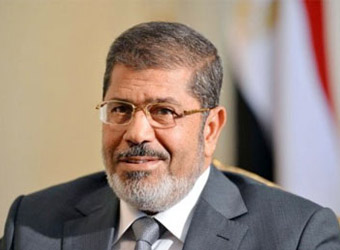As the challenge posed to Egypt’s new military rulers by the Muslim Brotherhood begins to fizzle, a semblance of normalcy is returning to the streets of a capital still reeling from the bloodiest eruption of unrest in the country’s modern history.
The traffic jams are back, the stores have opened and the cafes are full — at least during the day — as security measures choke off efforts by the Muslim Brotherhood to duplicate the protests that brought down two presidents in less than three years.
On Saturday, the government announced that a nighttime curfew, in force for the past 10 days, would be shortened by two hours, beginning instead at 9 p.m., a small relief in a country where people are accustomed to socializing, shopping and doing business late into the night.
But as Egypt embarks on yet another phase of its turbulent history — one in which a military-backed government, not so different from the one toppled in 2011, is in charge — an undertow of anxiety pervades the widespread popular acclaim that has greeted the return of the generals to political power.
Even the truncated curfew reinforces the sense that Egypt is in crisis, leaving people stuck indoors with little to do other than watch the pro-government television channels broadcasting endless attacks on the “terrorist” activities of the vilified Brotherhood. “Egypt fighting terrorism,” proclaims a logo prominently displayed on the screen of the state-run television network.
Deeply polarized
The invective has helped swing public opinion against the Islamist movement, which until July 3 was at the helm of the country’s first democratically elected government.
But it has also deepened the polarization of the country in ways that could backfire on the military in the weeks and months ahead as those squeezed out of the political process look for alternative ways to express themselves. More than 900 people were killed and thousands arrested in the army crackdown against supporters of deposed president Mohamed Morsi, which has left the Brotherhood’s legendary organizational structures in disarray and created a potentially deep well of personal grievance.
Hazem el-Beblawi, the interim prime minister, told reporters Saturday that restoring security is his government’s main priority. If the price of adopting less harsh tactics “is that people don’t feel secure, we won’t accept that,” he said, according to comments reported by the local media.
He said it was important also to pursue a political process aimed at restoring democracy, but he emphasized that it should not include “those who don’t accept the principles of no use of violence, no religion in politics, no attacks against minorities and no discrimination” — allegations the government has repeatedly leveled against the Brotherhood.
“The predominant ideology now is one of exclusion,” said Yasser el-Shimy, Egypt analyst for the International Crisis Group in Cairo. “Reconciliation is not on anyone’s agenda, including the Islamists, and it is likely to persist for the foreseeable future with no outcome . . . other than more security crackdowns and intermittent violence.”
Source: Washington Post
